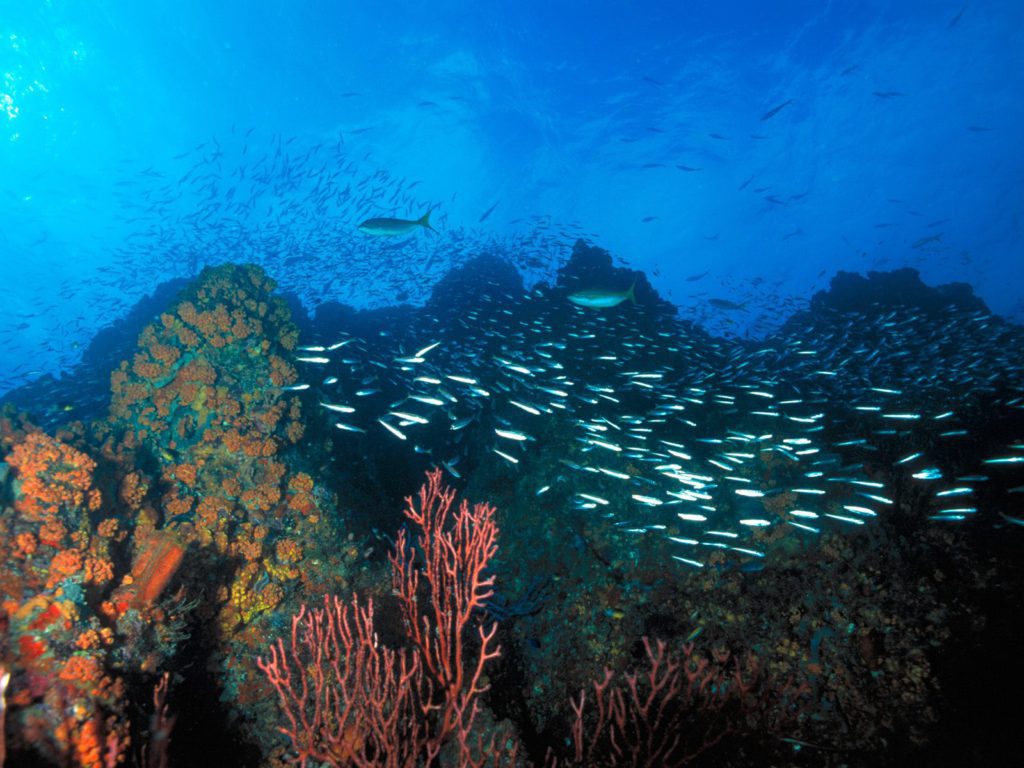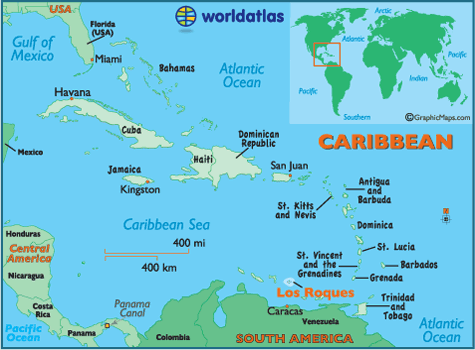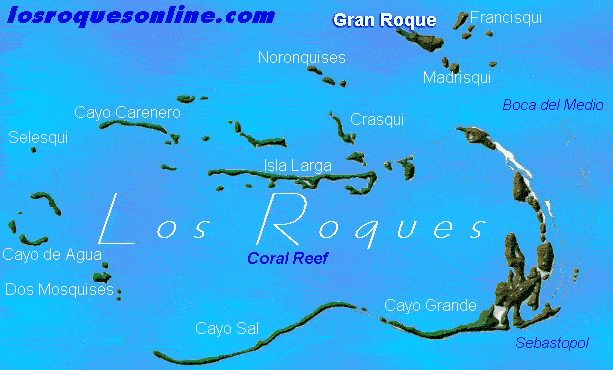
Updated August 8, 2022
This is the twenty-fifth in a series of reviews of the best scuba diving destinations around the world. In this post, the focus is Los Roques, Venezuela.
In addition to this series on dive resort locations, the best worldwide liveaboard dive locations and services are reviewed in their own series. To check them out, or others in this series, click on Liveaboards / Resorts on the menu at the top and choose a title from the list.
Have you ever been diving in Los Roques? If so, I’d love to know about your experience. What dive shop or liveaboard did you use? Which dive spots are the best and what are the conditions there regarding the visibility, current, water temperature, sealife attractions, etc.? Please post your response in the comments section at the bottom and we’ll all learn something we can use.
Best Los Roques Venezuela Diving
Background
Consisting of 350 islands, cays, and islets, Los Roques is an isolated archipelago covering 40.61 square km (25 square miles), 128 km (80 miles) north of the nearest mainland city, La Guaira, Venezuela, 176 km (110 miles) from the capital of Caracas and 160 km (100 miles) east of Bonaire. It has a permanent population of 1,500 that lives primarily on one island, El Gran Roque, and 70,000 visitors annually. Due to its bird population, it was made a national park in 1972. Since that time it has developed a reputation as one of the very finest scuba diving regions in the Caribbean. Spanish is the primary language. In the hotels and dive shops, there are English speakers.
Undersea World
Barrier reefs on the east and south provide protection and no mainland estuaries flow into the archipelago leaving it with pristine rich coral formations and clear water. There are shallow areas of seagrass and coral gardens, pinnacles, walls of soft corals and sea whips to as deep as 60 meters (200 feet), caverns, and 16th-century shipwrecks. Sponges of all sizes and colors enhance the reef palette and a long list of other highlights include queen conchs, lobster, angelfish, wrasses, parrotfish, barracuda, surgeonfish, butterflyfish, 4 species of turtle (green, hawksbill, leatherback, and loggerhead), nurse sharks, stingrays, manta and eagle rays, tarpon and whale sharks.
Seasons and Conditions
Diving is good year-round with seasonal variations in conditions. It is always warm with air temperatures to 30°C (86°F) in summer. It is windier from December to April, which can increase surface chop. The best diving is in the summer from June to October when water temperatures reach 30°C (86°F). The rainy season runs from September to January. Water temperature may dip as low as 25°C (77°F) in January and February. Most divers will be comfortable in a 3 mm wetsuit when the water is at its coldest. Visibility averages 30-40 meters (100-135 feet).
Liveaboard Diving
Los Roques is not an area renowned for liveaboard diving, but there are many cruises in other areas around the Caribbean. Click here for details of a Caribbean liveaboard:
For reviews of diving in eastern Florida and other Caribbean locations, please click on these posts:
- Scuba Diving in Islamorada Florida
- Scuba Diving on Key West Florida
- Best Scuba Diving Key Largo Florida
- Scuba Diving West Palm Beach Florida
- Ft. Lauderdale Scuba Diving
- Scuba Diving St. Barts
- Scuba Diving St. Eustatius
- Scuba Diving in Saba
- Scuba Diving St Kitts and Nevis
- Best Scuba Diving St. Martin
- Scuba Diving Ambergris Caye Belize
- Best Guadeloupe Scuba Diving
- Anguilla Scuba Diving
- Scuba Diving in Antigua and Barbuda
- Best Scuba Diving Jamaica
- Scuba Diving Cuba Best Dive Sites Cuba
- Best Cuba Scuba Diving Liveaboard Jardines de la Reina
- Scuba Diving the Dominican Republic
- Best Scuba Diving Panama
- Banco Chinchorro Diving Mexico
- Scuba Diving Playa Del Carmen
- Scuba Diving Tulum Mexico
- Cozumel Scuba Diving Review
- Scuba Diving Cancun Mexico
- Best Scuba Diving Puerto Rico
- Scuba Diving St Vincent and the Grenadines Review
- St. Lucia Scuba Diving Review
- Turks and Caicos Scuba Diving Review
- Best US Virgin Islands Vacations Scuba Diving
- Best Trinidad and Tobago Vacations Scuba Diving
- Best Caribbean Beach Vacations Curacao Scuba Diving
- Best Caribbean Diving Destinations Aruba
- Best Caribbean Dive Vacations Bonaire
- Best Tropical Island Vacations Dominica Scuba Diving
- Best Caribbean Scuba Diving Los Roques Venezuela
- Barbados Scuba Dive Vacations
- Grenada Scuba Diving Review
- Best Scuba Diving Caribbean – Martinique
- Best British Virgin Island Diving Liveaboard
- Best Bahamas Liveaboard Scuba Vacations
- Best Belize Dive Trips & Cocos Island Diving
*Note: In the above video you can see divers killing lionfish. In many places in the Caribbean, they have been introduced through the aquarium trade and made their way onto the reefs. They are considered invasive and not welcome due to their over-consumption of local species and throwing the ecology out of whack.


Selected Los Roques Dive Sites
- Barrera del Sur: to 36 meters (120 feet), barrier reef of 50 sites on the south of the archipelago, shallow coral garden and drop-off, morays, conger eels, turtles, barracuda, whale sharks, beginner to experienced level
- El Gran Roques – Los Roques Cueva de Los Sabolos: to 20 meters (68 feet), coral and sponge-covered wall, cavern at 15 meters (50 feet), beginner and experienced level
- El Gran Roques – Le Piedra de La Guasa: to 30 meters (100 feet), northwest of El Gran Roque, pinnacles from 6 meters (20 feet) descending to 30 meters (100 feet), rich coral reef, shoals of small tropicals, grouper, red snapper, barracuda, variable current, visibility to 27 meters (90 feet), beginner to experienced level
- Boca del Medio: 10-40 meters (35-130 feet), rich corals, barracuda, nurse sharks, manta and eagle rays, beginner and experienced
- Noronquises: elkhorn corals, turtles, shipwrecks
- Solapa de Rabusqui: caverns with a variety of crustaceans, nurse sharks
- Dos Mosquises: rich corals, turtles
- Tounge of the Ocean
- Boca de Cote
- La Buceadora
- Francisqui
As you can see, information on many of the dive sites is scant to nonexistent. I invite those of you who dive there to give me your descriptions in the comments and I will provide more details here. Thanks.
Los Roques Transportation, Lodging, & Dive Shops
Transportation
Los Roques Airport, on El Gran Roque Island, handles flights all through the daylight hours, mostly from Caracas for small aircraft (STOL). From there most people go to the port and travel to other islands using small boats, called peneros, from 9 am to 4 pm.
Lodging and Dive Shops
On El Gran Roque there are a few hotels in the 3-5 star range and a number of mom and pop operations. It is best to book early as rooms are limited and it is a very popular destination. As for diving, there are several shops to service you on El Gran Roque. This website is a good source for the available housing options and can arrange a booking:
Los Roques Things To Do (aside from scuba diving)
Most activities are related to the beautiful seaside and the outdoors. The Los Roques National Park was originally set up as a bird sanctuary and the islands are home to many seabirds including pelicans and seagulls, as well as iguanas, salamanders, and black lizards. One can island hop and trek to do a little bird and wildlife watching and take in the landscape that includes lighthouses and a volcano. Snorkeling, paddleboarding, surfing, windsurfing, kiteboarding, and fishing charters (bonefish, barracuda, jacks, Spanish mackerel) are all popular.
Los Roques Photo Opportunities
With the macro life, beautiful, diverse coral reef, lots of fish, caverns, and wrecks, there are many excellent photo opportunities. For information and reviews of diving cameras, click here:
Scuba Diving Trip Insurance
A cushion for emergencies provides peace of mind when on vacation. I recommend this diving insurance as they have worldwide coverage and provide scuba divers quality insurance and medical assistance service.
Feedback and Comments
I hope you found this post on Los Roques scuba diving interesting and useful. If you have any questions or ideas, please feel free to share them in the comments section. I’d love to know of any experience you have diving there. If there is no comments section directly below, click here: >>comments<<

Wow that looks great. That’s the second time I have seen that archipelago in video and it is sure on my scuba bucket list. Video and photography look amazing.
Being a national park do they allow any spearfishing? I did see a shot of a lionfish taking the paralyzer. lol We have an intrusion problem with the lionfish here in the Gulf of Mexico. Dang I remember when I saw them only in pictures and fish tanks lol Now they are everywhere ~~~ good sushimi though $6 to 12 dollars a pound depending on how bad you mess em up with the paralyzer. lol
Have you ever been there?
onward n upward
Hi Dennis,
Thanks for your interest and comments.
The spearfishing is just for the lionfish. As you say, it is an intrusion problem. I have heard they are good eating, but haven’t tried them yet. Here in Asia they are not really in the marketplace and as natives they are in balance with the ecology.
I haven’t yet gone to Los Roques. I found that so many indicated what great diving they have, that I did some research and put together that short review. As I indicated after the descriptions of the dive sites, I would welcome anyone who has gone there to give me some feedback and help improve the site descriptions.
Thanks a lot for your feedback.
Best regards,
Joe
Good day Joe, would be very grateful for an honest opinion of any personal safety concerns there would be out in the (los Roques) islands, seeing as most travel advisories are saying stay out of venezuela right now. But also wondering if the tourist trade is hurting bad enough for there to be any extra special deals to be found right now, or is it business as usual as far as tourists go? Would like to find a location off the main island that offers kite boarding in addition to diving. Thanks for insights.
Hi Brent,
My research shows that the US, Canada, the UK and New Zealand all have issued travel advisories against going there at present. I can only advise to wait for a better opportunity when things are more stable. Unfortunately, it’s hard to say when that will be. Flights in and out have been reduced and need to be booked well in advance. If you fly to the airport in Caracas, you do not need to leave the airport. You can stay there or in a hotel at the airport and then fly out without having to go into the more dangerous city. I looked for transportation from Bonaire to Los Roques and it does not appear readily available. I also looked through the hotels in Los Roques and don’t see any major discounts. Perhaps they are not seeing a decrease in business. There may be others, but all the hotels at my agent are located on El Gran Roque, as are the dive shops. You would have to depart from there for the best kite surfing opportunities.
Unfortunately I have probably not given you much you didn’t already know. Take care if you decide to make the trip.
Best regards,
Joe
Thanks for the great article. I’m planning a diving trip to Los Roques soon and will let you know how it goes! We will be flying from Caracas and I was trying to find a reputable dive shop, looks like there are quite a few. I wanted to go to Bonaire but there are no flights serving Caracas to Bonaire at the moment. It looks beautiful !
Hi Amy,
I am glad you enjoyed the article. I’ll eagerly await your next comment about how the trip goes. If you can give me any opinions about the dive sites and services there, I would appreciate it. Thanks so much for your comments.
Take care in Caracas.
Best regards,
Joe